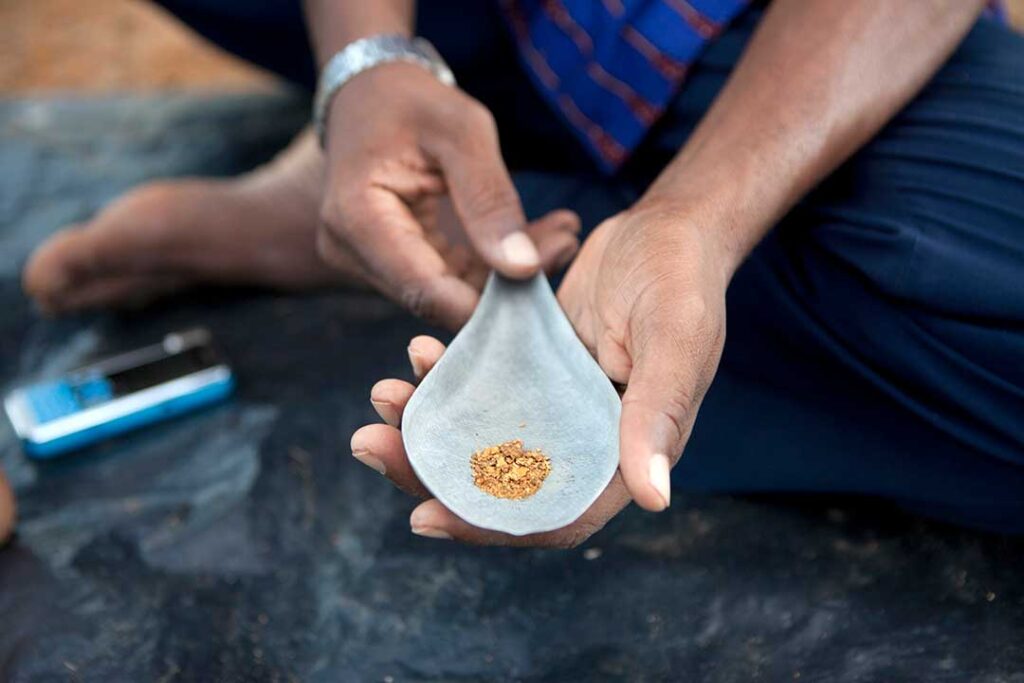ADF STAFF
Ahmed was crossing Mali in an attempt to reach Europe when he was waylaid by extremists and forced to work in one of the country’s artisanal gold mines.
“We’ve been here for a year,” he told Al Jazeera. “My brother has been here for six months. We are provided with safety and security as long as we do the work.”
Working alongside Ahmed and his brother are other adults and many children.
Gold plays a major role in the economies of countries across the Sahel, financing both governments and extremists alike. As it has become associated with corruption, extremism, and violence, the gold mined in Mali and elsewhere has earned the moniker “blood gold.”
Gold makes up more than 96% of Mali’s exports. With their major export facing resistance from international markets, junta leaders recently announced plans to develop a gold refinery in the capital, Bamako, with Russia’s help.
Coup leaders have said the proposed refinery, which could process up to 200 metric tons per year, will give Mali greater control over its gold production and the revenue it generates. Shortly before signing the deal with Russia, the junta increased the government’s possible stake in Mali’s mining sector from 20% to 35%.
The agreement follows Mali’s embrace of mercenaries with the Russian Wagner Group in their drive to put down extremist activity in the country’s northern regions.
Wagner arrived in Mali two years ago. Since then, Wagner has brought in its associated mining companies to extract the country’s gold both for itself and to bolster Russian President Vladimir Putin’s invasion of Ukraine. By some estimates, the Wagner Group costs Mali $10 million each month.
Wagner fighters have been connected to summary executions and other human rights violations in Mali, most notably the murder of hundreds of civilians over three days in the community of Moura in 2022.
Wagner and Malian forces recently took control of Kidal in northern Mali, an important center for gold mining. United Nations peacekeepers left Kidal on October 31 after the ruling junta demanded that the U.N. shut down its decade-long MINUSMA peacekeeping mission.
“In the Kidal region, control of goldfields plays a significant role in conflict financing and power dynamics,” researchers with the Global Initiative Against Transnational Crime wrote in a 2022 analysis of “blood gold” mining in West Africa.
As one of Africa’s top gold producers, Mali exports about $9 billion in gold each year, with about half of that going to the United Arab Emirates (UAE) for refining. About 15% of Mali’s gold goes to Switzerland, which also refines gold from the UAE and other sources. The remainder of Mali’s gold exports are split among other countries, including Australia, China and Turkey, according to the Observatory of Economic Complexity.
International agencies have begun to warn countries and companies involved in mining and refining Mali’s gold to do more to reject “blood gold” associated with conflict and extremism.
“Multinationals that refine gold in Switzerland know perfectly well where their raw materials are coming from. They just don’t say it,” Marc Ummel, head of development policy in the raw materials sector at Swissaid, told news site Swissinfo.

